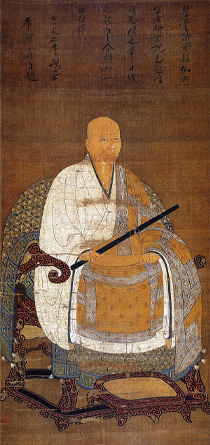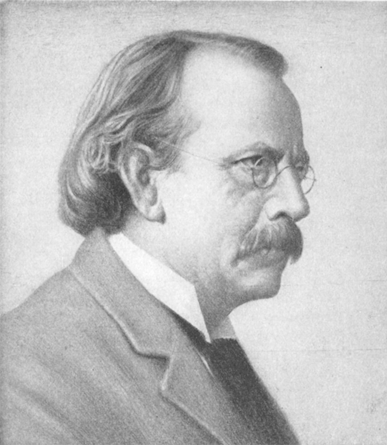“Read the books written by him. You know, he is your Senpai*.”
When I was working at a bank in its corporate sales division, a lady, a company president and one of my clients, mentioned someone to me. Masahiro Yasuoka sensei** was the person. By that time, I had immersed myself too fully in the Western way of thinking and was somehow feeling stuck in my intellectual pursuits. As I read his books, which were full of classic Eastern wisdom, they quenched my intellectual thirst as though a blessed rain pour after a long period of drought. It was a fateful moment in my life.

Yasuoka-sensei often refers to a quote, “Old teachings illuminate one’s heart. One’s heart illuminates old teachings.” I would like to introduce a passage below, taken from his book, where he interprets the meaning of this quote, as it is very thought-provoking for those who engage in learning:
There are two ways of reading. One is to keep accepting what you read throughout, and this is an act of receiving. It is not spontaneous, but it is being given. The book is an agent and you are reacting to it. You are receiving what is being offered. That is, you are absorbing. You are a guest, and the book is the host. In English, it is called “passive.” In an Eastern classic expression, it is sort of, “Old teachings illuminate one’s heart.” The problem of this is that, because it is passive, it lacks spontaneity, the power of “self” in the action. Notice this problem and question yourself. Think it on your own, be the one that leads this learning process, and go back to what you have read before. Then, you are actively reading it. Kokan Zenshi (i.e. Kokan Shiren, a priest of the Rinzai school of Zen in Japan) said “Old teachings illuminate one’s heart. One’s heart illuminates old teachings.” This is a truly profound, powerful word. It means that you are the actor and your heart illuminates the old knowledge.
Masahiro Yasuoka, “Katsugaku to shite no Toyo Shiso (Eastern Philosophy as Dynamic Learning)”, 2002, p.24., Not an official translation.

Diligently taking notes and memorizing what your teacher or boss says will never make you anything more than a poor facsimile of them. Instead, make sure to think through what they say, make sure to “read through” and fully digest it, and then develop your own opinion. In that sense, a teacher is a catalyst; all he/she can do is to sow good seeds in students’ hearts and act as a grindstone to polish their learning through dynamic interactions. In other words, teachers are there to provide support.
Related blogs➡ Let them develop questions instead of giving them an answer: My thoughts about the importance of timing

Of course, we must not interpret a teaching for our own convenience or twist an argument so that it fits our own theory. By all means, “old teachings illuminate one’s heart” comes before “one’s heart illuminates old teachings.” What we should not do, however, is to settle in the feeling that we understood the teachings. Instead, our knowledge should illuminate the idea and allow further interpretation of it, so that the whole experience truly becomes a part of ourselves.
Jiro Shirasu (a famous Japanese businessman who worked as part of the Yoshida Shigeru administration in post-war Japan) has been said to be the only disobedient Japanese after the war, who confronted the GHQ by saying, “We have lost the war but are not enslaved.” Before the war, he studied at Cambridge, during which period he had a remarkable experience:
Cambridge is renowned for its prestigious faculty. The famous economist John Maynard Keynes is also part of the faculty group. He (i.e. Jiro Shirasu) immersed himself in this great learning environment and absorbed as much knowledge as he could. He had a notable experience around this time.
It was when he took an exam in J. J. Thomson’s class (a famous physicist who discovered the electron). He was confident that he scored high in this exam because he studied hard and thoroughly reviewed what he learned during the class. However, upon receiving the result he was disappointed. The grade was unexpectedly low. Feeling frustrated, he carefully inspected his answer sheet and noticed something.
There was a note that said, “I don’t see your own ideas in any of your answers.” He felt a jolt of electricity throughout his body, from head to toe. He thought, “This is the answer to the question I have had for long since junior high school,” and felt deep joy from within.
He completely forgot how frustrated he was about the low grade and felt like thanking and shaking hands with everyone who was around. He thought, “Alright, let’s do this!”
In the following exam, he didn’t hesitate to share his own opinion and received a high score. It was the moment he deeply appreciated the joy of studying in the UK.
Yasutoshi Kita, “Shirasu Jiro Senryo wo seotta otoko (A man who carried the occupied land)” 2005, p.26.

Similar stories are shared among those Japanese who studied abroad in Europe or North America. People who went through such learning experience have realized the importance of having their own opinion and work hard to cultivate themselves. In Eastern Asia, there is a lingering culture based on the ancient imperial examination tradition, where memorization not only plays a major part of study but is also regarded valuable. I hope we can remind ourselves of the phrase, “Old teachings illuminate one’s heart. One’s heart illuminates old teachings,” and take a step forward in our learning journey.
*senpai = senior. In this context, a much older person.
**a title used for a respected person